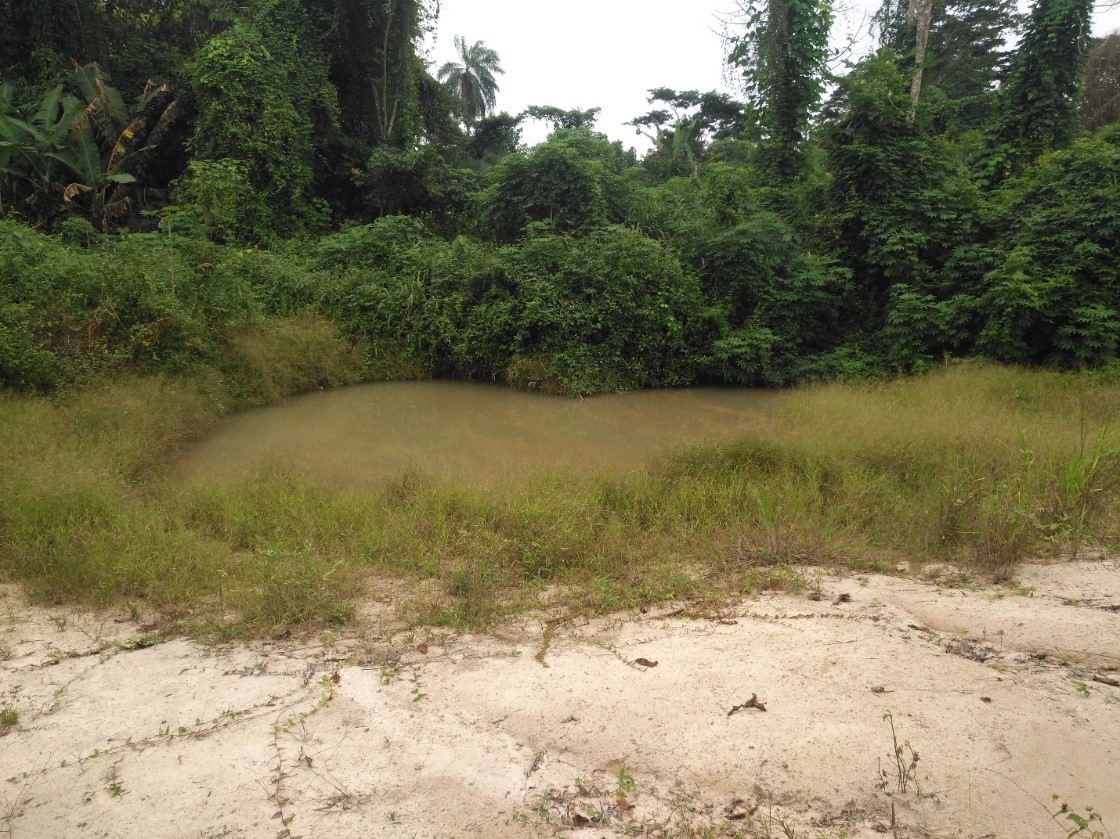Indiscriminate sand winning has reared its ugly head in parts of Ashanti Region, destroying cocoa farms and farmlands.
The aggression of the sand winners pose a threat to sustainable cocoa production as farms along streams in the target areas are being consumed with or without the consent of farmers.
Investigations by the B&FT revealed that the sand winners who operate day and night have connived with some community leaders, including traditional authorities and family heads to wreck the havoc.
The devastating illegal sand winning activities are rife in cocoa production areas including Effiduase, Tunkumso, Tetekaaso in Sekyere East District; Bomeng and Akrofosu in Sekyere-Kumawu District; and Yawnso in Sekyere Central among other communities like Kyekyewere and Boaman all in the Ashanti Region.
The sand winners use excavators while others resort to manual (pickaxe and shovel) to collect the sand from farmlands with little or no protest by individual farm owners. The destroyed farms have been left with scar-like ponds and the likes.
Sources say they [sand winners] pay as low as GH¢3,000 as compensation for an acre of destroyed cocoa farm. The modus operandi of the sand winners is that they sometimes destroy the farms before negotiating with individual farmers. They hide behind supposed authorisation from chiefs and family heads to bully farmers as well as water down the demands during negotiations.
Whereas some farmers are of the view that farming, and for that matter cocoa production, was fast becoming challenging and they willingly lease out their farms to sand winners.
In an interview with Opanii Kwadwo Yeboah, one of the affected farmers at Effduase, he said: “My farm was ravaged by pests and diseases and cost of maintenance was rising steadily as against year-on-year-on low yields, hence the decision to sell to the sand winners.”
A community member at Tunkumso near Effiduase who spoke to the B&FT on condition of anonymity blamed traditional authorities for doing very little to discourage the incessant activities of sand winning. The activist claimed some traditional leaders have prioritised their “selfish interest” to the detriment of the environment and therefore called on the powers that be to swiftly intervene to salvage the environment from further degradation.
When contacted, the Ashanti Regional Manager of the Cocoa Health and Extension Division (CHED) of Ghana Cocoa Board (COCOBOD), Kwadwo Osei Danso, said to some extent, the Board is aware of the menace and very much worried about the trend, urging farmers and other farmland owners to be wary of the negative impact of giving out farms to sand winners.
“In as much as COCOBOD is against the situation, the individuals, clans and chiefs own the farmlands and therefore if such persons decide to give out cocoa farms to sand winners, the Board can’t do anything about it. But our duty is to sensitize the farmers to come together as one body to help ward-off these sand winners and other human-induced anti-cocoa production activities.”

If not stopped, sand winning in cocoa farms could deepen the woes of Ghana cocoa production as the country is struggling to halt other activities like illegal mining. Other worrying issues such as climate change and swollen shoot disease infection continue to wipe away hectares of cocoa farms in the country.
In 2017, a parliamentary report revealed that 85 percent of sand winners in the country operate illegally. The report indicted the Minerals Commission for slacking, thus fueling the activities of illegal sand winning across the country.
Another observation made by the report and believed to be influencing the menace was the cumbersome procedure and the duration within which a prospective sand winner has to go through to secure a licence to operate.
According to the Minerals and Mining Act, 2006 and the Environmental Assessment Regulations, the maximum duration for the issuance of license is about 11 months, however the report gathered that in practice, it takes over two years to acquire a license.










